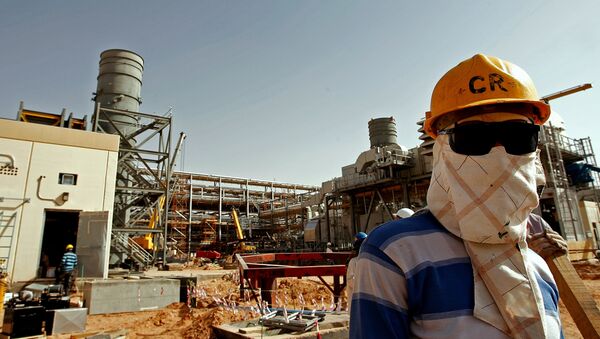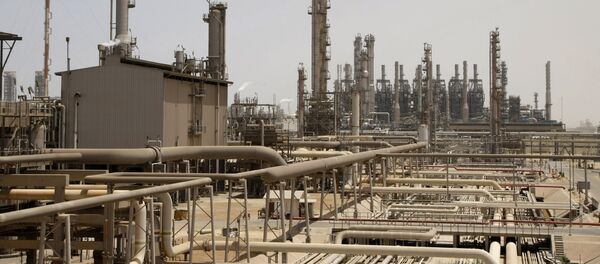MOSCOW (Sputnik) — Riyadh is ready to freeze the oil output as proposed in a Doha deal of oil producers, even if Tehran does not follow the move, media reported Tuesday, citing an Organization of the Petroleum Exporting Countries (OPEC) delegate.
In February, the energy ministers of Saudi Arabia, Qatar, Venezuela, and Russia discussed the current oil market situation in the Qatari capital of Doha and agreed to freeze oil production at January levels if other countries followed suit. Iran did not take part in the meeting.
"There is agreement from many countries to go along with a freeze, why make it contingent on Iran," the delegate was quoted as saying by The Financial Times newspaper.
Earlier in March, Iranian Oil Minister Bijan Zangeneh said that Iran could join the initiative to freeze oil extraction, only after Tehran's daily oil output had reached four million barrels.
Global oil prices plunged from $115 to less than $30 per barrel between June 2014 and January 2016, hitting their lowest levels since 2003 amid an ongoing oversupply in the global oil market.
The Doha deal is expected to be finalized on April 17.





